Dealing with diaper rash
If your baby’s diaper area looks red and irritated, it’s probably a diaper rash. Do not worry, as it’s a very common condition and can be treated at home with these handy tips:- Change your baby’s diapers often.
- Keep your baby diaper-free when possible to allow air-drying and skin healing.
- Clean the diaper area with a soft washcloth and water or baby wipes free of alcohol and fragrance to prevent irritation. For severe rash, you can use a squirt bottle (squeeze bottle) to rinse the area with water.
- Apply a diaper rash cream or ointment (containing zinc oxide or petrolatum) to soothe and protect the affected areas.
- Fever
- Diaper rash in the first six weeks
- Small ulcers or pimples in the rash area
- Rash spreads to other parts of the body
- Oozing from the rash
- Worsening of the rash despite home remedies
Fighting a fever
The normal rectal temperature (in a baby’s bottom) is 99.6°F, with a temperature above 100.4°F being considered a fever. If your baby is less than three months old, consult your doctor immediately for fever. If your baby is less than two months old, do not give her any medicine unless advised by the doctor.Try these tips to comfort your baby when they have a fever:
- Keep the room at a comfortable temperature, that is, neither too cold nor too hot.
- Dress your baby in light clothes and cover them with a light blanket or sheet to prevent trapping body heat.
- Use an extra blanket if your child has chills, but take it off as soon as the chills stop.
- Use lukewarm water to give your baby a bath. Do not use alcohol or cold water, as it causes shivering that raises body temperature.
- Make sure your baby takes regular feedings and stays hydrated.
- Unusually drowsy or fussy
- Unexplained rashes
- Diarrhoea or vomiting
- Seizure
- Has been in a very hot place, such as an overheated car
Wave goodbye to vomiting
Newborn babies often spit up after feeding, but this is harmless as the baby’s digestive system is still developing. If your baby seems comfortable and is gaining weight, you need not worry about the spit ups. However, if you notice your baby forcefully vomiting after a feed, consult your doctor, as there could be a more serious problem.If your doctor does not think there is any cause for concern, you can try these tips to help your baby:
- Keep the baby’s head above the level of their feet while feeding, and hold them upright for about 30 minutes after feeding.
- Give small but frequent feeds, and burp your baby often during and after feeding.
- Do not play with your baby immediately after feeding.
- Make sure your baby’s diaper is not too tight.
It is crucial to know when your baby is in distress and showing warning signs of an oncoming illness. Identify some of the common unhealthy baby symptoms with a quick guide, here.
Keeping a check on cough and cold
Babies can get a cold 8-10 times a year before they are two years old, as they have no immunity yet against the hundreds of different cold viruses. Your little one may also have a cough as the mucus irritates the back of the throat. Common colds usually get better on their own in about 10 days. However, you can ease your baby’s discomfort with the following tips:- Use a humidifier or vaporiser in your baby’s room to moisten the air, or sit with your baby in a steam-filled bathroom to ease the dryness in their throat and nasal passages.
- Dab a little petroleum jelly around the baby’s nose to soothe the rawness.
- Before feeding, put a few drops of saline (saltwater) in your baby’s nostrils and use a rubber bulb to suck out all the mucus a few minutes later. This will clear the baby’s nose and allow them to feed comfortably.
- Unless prescribed by your doctor, do not give your baby any over-the-counter medicines or nasal sprays.
- Offer your baby frequent feeds to keep them hydrated.
- In babies aged 3 months to a year, you can give one to three teaspoons of clear, warm fluids, like lemonade or apple juice, about four times a day to soothe their throat. If your baby is older than 1 year, you can give about half to one teaspoon of honey whenever needed.
- Wheezing
- Difficulty breathing
- Worsening of your child’s condition
- Cough that lasts for longer than three weeks
References:
- MedlinePlus. Common infant and newborn problems.
- Familydoctor.org. Diaper rash [2020].
- American Academy of Dermatology Association. How to treat diaper rash.
- Familydoctor.org. Fever in infants and children [2018].
- KidsHealth. Fevers [2018].
- Nationwide Children’s. When your newborn has a fever [2010].
- HealthyChildren.org. When to call the pediatrician: Fever [2015].
- KidsHealth. Breastfeeding FAQs: some common concerns [2015].
- University of Rochester Medical Center. Gastrointestinal problems.
- Cleveland Clinic. Common cold in babies [2018].
- Children’s Hospital St. Louis. Cough.




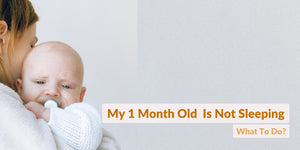

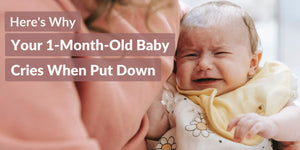
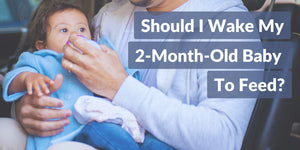
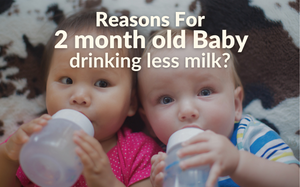
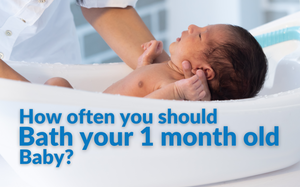

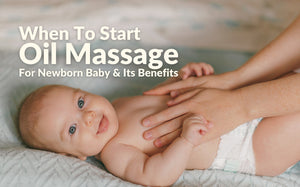

LEAVE A COMMENT